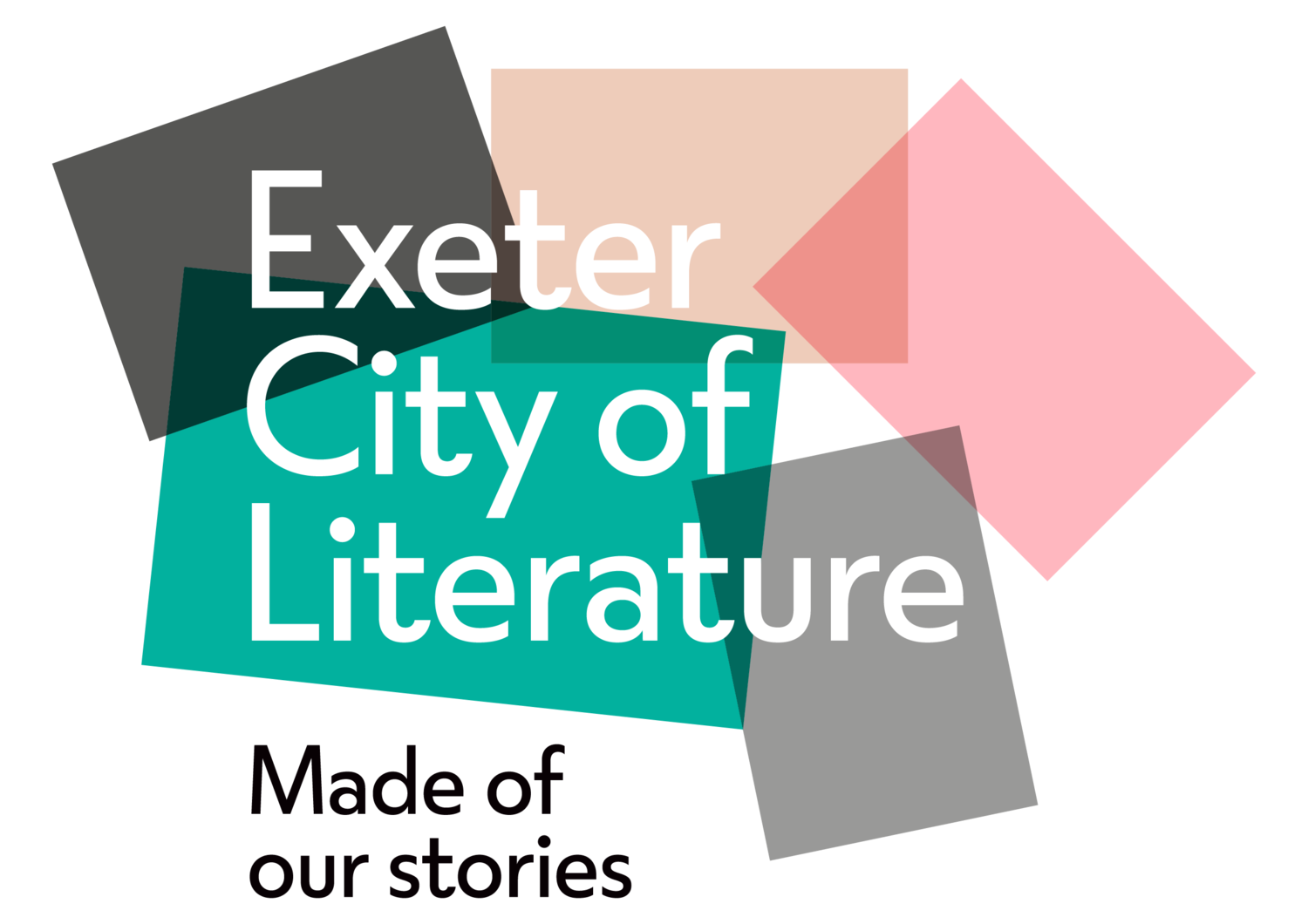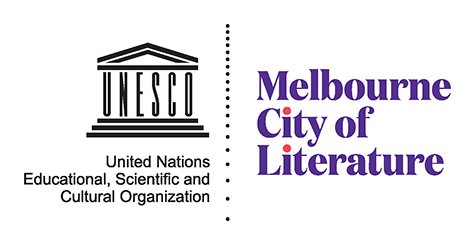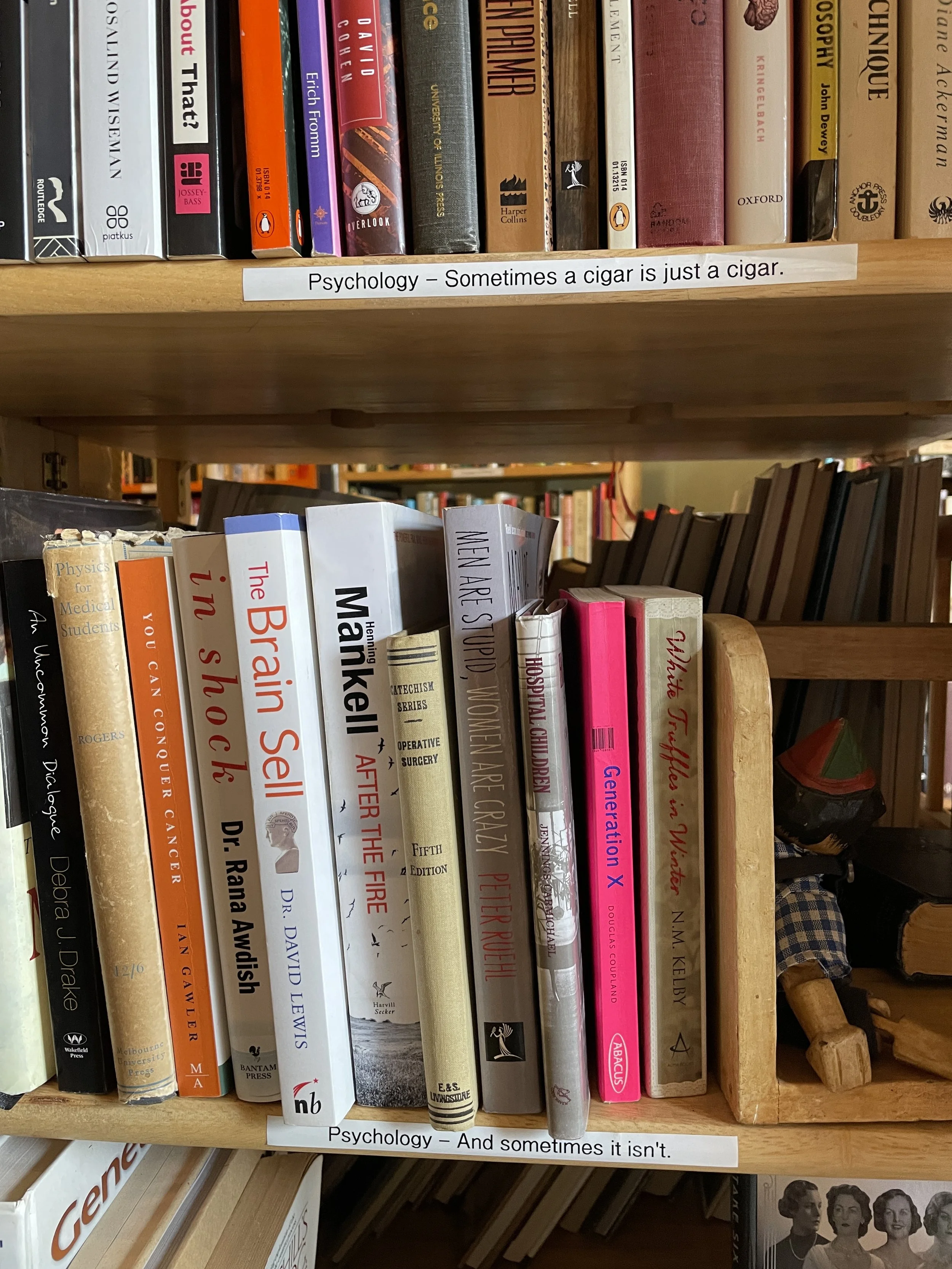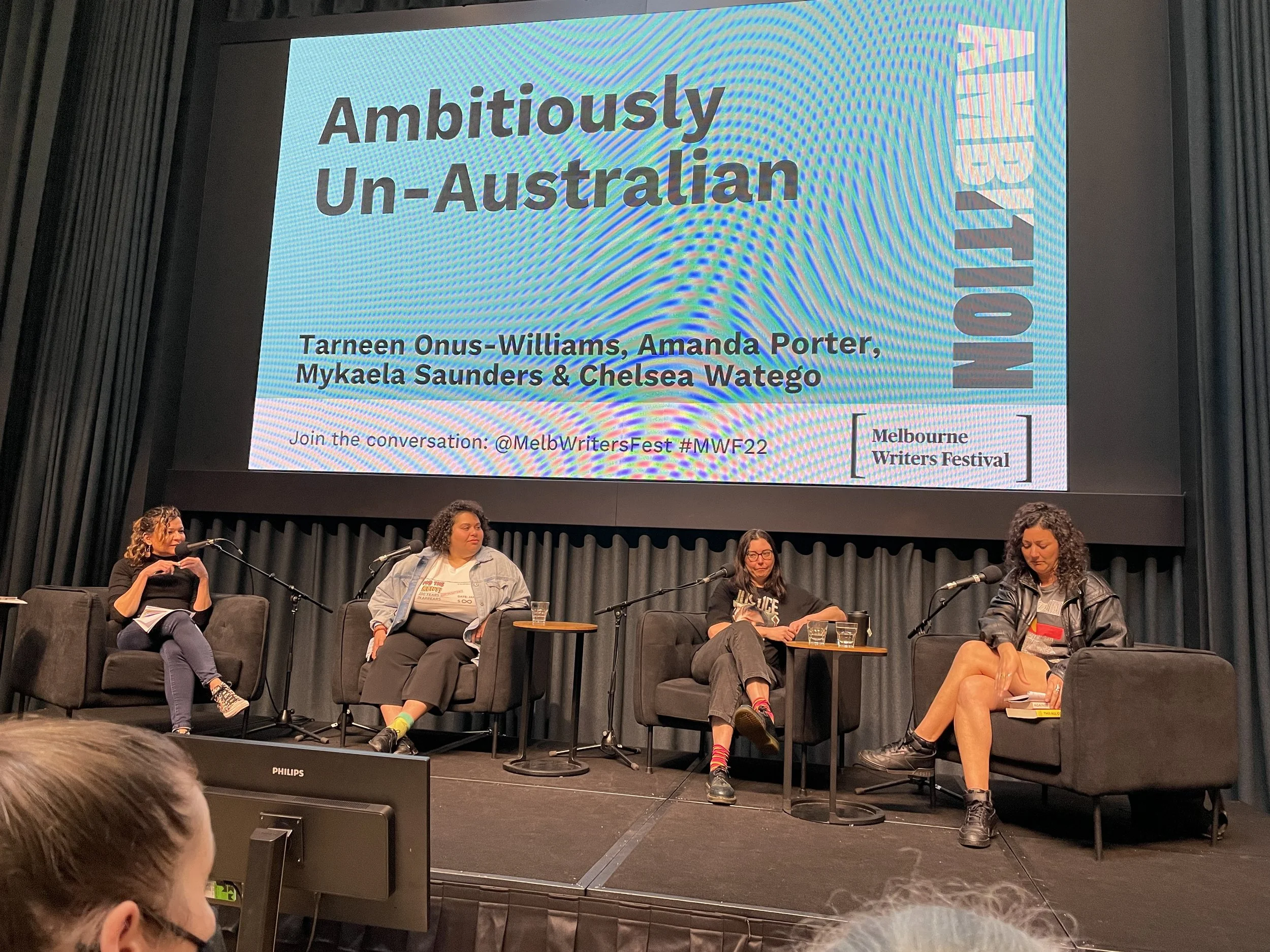Representing Exeter in Melbourne
“We exist to make the world smaller, and to make each other better.”
– David Ryding, Director of Melbourne City of Literature
This year, the annual UNESCO Cities of Literature conference was hosted by Melbourne, which became the second ever UNESCO City of Literature in 2008. In September 2022, 26 Cities of Literature met for an inspiring week-long conference of presentations, roundtables, and collaboration. Exeter was represented by our Executive Director, Anna Cohn Orchard. Here’s some of what took place during this week of productive engagement, international networking on behalf of Exeter, and peer-to-peer support.
Meetings and events in Naarm (Melbourne) always begin with an acknowledgment that it’s taking place on unceded land stolen from Aboriginal peoples. Our meetings took place on the lands of the Wurundjeri and Bunurong peoples.
One of our meetings also began with incredible poetry readings by Maxine Beneba Clarke, author of How Decent Folk Behave. More meetings should begin with poetry readings, yes?!
To kick off the busy week, we were welcomed by Melbourne’s Lord Mayor, Sally Capp, and the City of Melbourne Culture team at the Town Hall, and we attended a dinner hosted by the Minister for Creative Industries, Steve Dimopolous MP. I presented the Lord Mayor with gifts from Exeter’s own Lord Mayor, Stella Brock, and learned about Melbourne’s involvement in the arts & culture, their COVID response, and a festival celebrating First Nations creatives.
We met with more creative teams the following day at The Wheeler Centre, a multi-organisation literary space focused on books, writing, and ideas. In the afternoon, the Cities of Literature Network Working Groups met to discuss their respective projects. I’m leading the Residencies Working Group, which has drafted a guide for new and existing Cities on hosting virtual and in-person writer residencies across the Network.
The early hours of Wednesday morning found us at the stunning State Library of Victoria (top left), a gorgeous and useful space that promotes the value of words and gathering in every room. The Library underwent renovations in 2019 and houses an art gallery, event spaces, a bookshop and café, and free audio studios. The Library even produced a podcast on bibliotherapy during the pandemic (listen here)!
One of the many benefits of our annual conferences is getting to discuss the literary sector with industry experts from around the world. On Wednesday afternoon we participated in a lengthy roundtable on the topic of our choosing. I chose Reader Development and met with reading engagement librarians from across the city, staff from PEN Melbourne, the Chief Executive of Australian Poetry, independent publishers, and of course our fellow UNESCO colleagues among others. It was a rich conversation highlighting just how similar the challenges are in each of our cities and countries when it comes to financial support for the arts, event programming, and achieving grassroots-led, meaningful community engagement.
Early Thursday morning (yes, there were many early mornings—yay jet lag!) was one of my favourites; as the daughter of a bookseller, this is to be expected. A small group of us were taken to The Little Bookroom, believed to be the world’s oldest children’s bookshop, a magical space that holds Queer YA Book Clubs, has a community donation scheme for local schools, and prioritises First Nations books when putting together libraries for organisations. An inspirational indie for sure. (Thanks to Melbourne’s City of Literature Map, I also visited Page Two, Paperback, and Hill of Content.)
UNESCO delegates at The Little Bookroom
My purchases from The Little Bookroom
Funny categories at Page Two
Sharing best practice is a central part of these conferences, and on Thursday we presented to our fellow Cities of Literature as well as representatives from other UNESCO Creative Cities across Australia and New Zealand. I presented on the bibliotherapy course we run in partnership with Exeter College and the Wellcome Centre, and heard from colleagues on poetry on manhole covers, a guide to making literature events accessible for disabled people, and a literature garden in Jakarta. Lviv, Edinburgh, and Norwich are all interested in bringing Exeter’s bibliotherapy project to their cities in some form, so stay tuned for more on that!
We also share literary-themed gifts with one another—I gave copies of The Beat of Our Hearts by Natalie McGrath to my fellow Cities of Literature and received some beautiful items in return.
These presentations took place at The Library at The Dock, the newest library in Melbourne with a recording studio, creative editing suites, ping pong tables, a performance space, and more. While there, we participated in an annual tradition of presenting our host city with children’s books from each of our cities in honour of International Literacy Day. I presented Councillor Jamal Hakim with Sunshine at Bedtime by Clare Helen Welsh.
Part of being a UNESCO Creative City involves reading and scoring applications from prospective Cities of Literature. As a Network, we discuss how best to support prospective cities, particularly from the Global South. Being a part of an international network is a privilege and responsibility we take seriously, especially given what our sister Cities of Literature of Lviv and Odessa are facing. We were fortunate to have the Lviv office with us in Melbourne and our Network has reiterated its unwavering support for Ukraine and our commitment to championing Ukrainian literature, language, and culture.
My last conference activity was one of the most profound: a gripping discussion between Dr. Chelsea Watego, Tarneen Onus-Williams, Dr. Amanda Porter, and Mykaela Saunders titled Ambitiously Un-Australian. The panellists discussed colonial oppression and the suppression, and power, of Black voices in Australia and it was remarkable. This was part of the Melbourne Writers Festival, an annual literary festival filled with talented and popular local and international writers.
A huge thank you to David Ryding and his tireless team for producing an action-packed week for the Cities of Literature Network, allowing us to help the world feel smaller and make each other better. We look forward to 2023!
26 October 2022

















